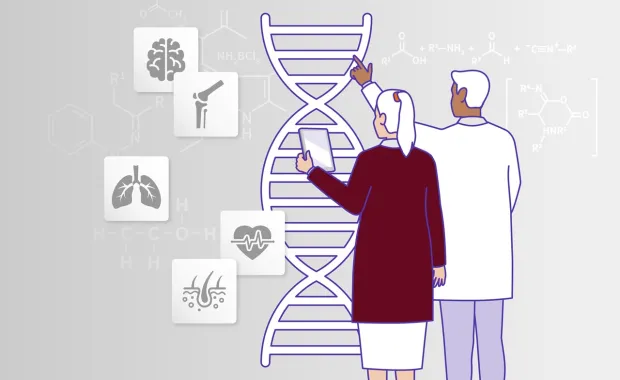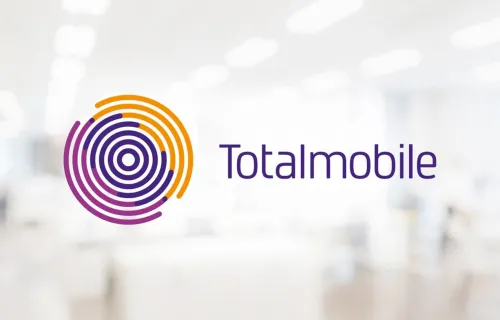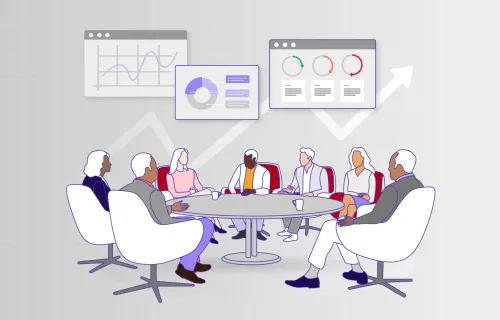Top trends and priorities focus on digitisation to improve patient and business outcomes
We met with 130 health and life sciences executives to understand their top priorities and how they are preparing for and adapting to key trends shaping their organisations. This year, executives are prioritising:
- AI adoption and data-driven innovation to enhance operations and patient care
- Digital maturity with a focus on AI scalability, platform modernisation, and data-driven strategies to gain a competitive advantage
- Accelerating digital adoption to manage rising patient demand, cost pressures, regulatory complexity, and talent shortages
IT modernisation and cloud migration are priorities
#1 business priorityachieving financial resiliency and cost optimisation51%plan to invest in operational efficiencies through AI and automation53%plan to modernise their digital and IT infrastructure over the next two years
- 65%
report difficulties in attracting skilled IT talent and stabilising their existing workforce- 53%
cite that legacy systems pose a challenge, which requires talent to successfully overcome digitisation barriers- 20%
cite regulatory and compliance challenges as a top constraint to achieving business priorities- 25%
report percentage of revenue spent on OpEx is less than in previous years
Digital leaders accelerate digitisation with measurable results
32% of executives who are generating expected results from their digitisation strategies—the digital leaders—share common traits that help them deliver superior performance. In health and life sciences, digital leaders:
Have operating models that are highly agile to adapt to digitisation
+20pp
vs. others*
Have a holistic data strategy extending to the ecosystem
+12pp
vs. others*
Produce results from their data privacy and protection strategy, extending to the ecosystem
+42pp
vs. others*
* “Digital leaders” are those producing expected results, and “others” are those building or launching their digital strategies.
pp = percentage points
At CGI, we help health and care organisations advance their digital transformation and optimise operations to improve patient care and outcomes. Learn more about:
Artificial intelligence Business consulting Cyber securityCloud & Hybrid IT












